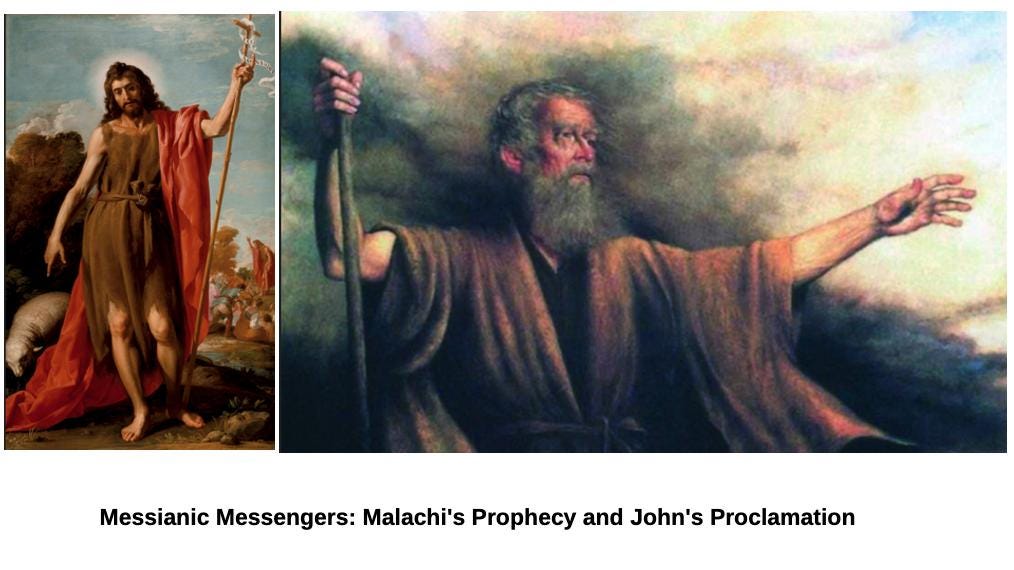Messianic Messengers: Malachi's Prophecy and John's Proclamation
Malachi 3:1-4,23-24 - Saturday, December 23, 2023
The Book of Malachi stands as the final prophetic work recorded in the Old Testament, marking the conclusion of Jewish prophetic tradition. Haggai, Zechariah, and Malachi were recognized as the last prophets, followed by an era of rabbis and legal scholars. The Old Testament has an ambivalent approach to prophets and prophecy. On the one hand, it recognises its validity and importance in the history of the Jewish religion but on the other hand, it does not feel comfortable with their claim of direct access to God. Thus, in view of the Old Testament, the greatest prophet was at the same time the lawgiver, Moses.
The name "Malachi" means "my messenger" and whether it is a personal name is uncertain. The opening statement in our reading, "Behold, I am sending My messenger to prepare the way before Me" (Malachi 3:1), leaves the identity of this messenger ambiguous. In the ancient Greek translation (the Septuagint), this word was rendered as "my angel" but many scholars tried to identify him with a human being, usually with Elijah. Linking Malachi 3:1 with Isaiah 40:3, Christian tradition associated this messenger with John the Baptist (see Matthew 11:10, Mark 1:2, Luke 7:27).
The arrival of the messenger of the Lord is depicted in vivid and formidable imagery: "For he is like the refiner's fire, or like the fuller's lye" (Malachi 3:3). This messenger seems to concentrate on the sacrificial system of Jerusalem's temple, aiming to purify the Levites responsible for its proper function. Scholars place the book of Malachi during the time of the Second Temple's reconstruction (around 516 BC) when sacrificial offerings to the Lord were reinstated. However, Malachi sharply criticizes priests who misguide the people with their rulings and condemns improper sacrifices on the temple's altar (see Malachi 1:6-2:8).
Although John the Baptist hailed from the Levitical tribe, there's no mention of him serving in the temple. Instead, he emerged in the desert, preaching repentance and anticipating the Lord's arrival. Some scholars suggest John belonged to an ancient Jewish faction that rejected the temple, its priests, and its sacrificial system. While that might hold some truth, John aimed to purify the religious establishment of his time, calling them a "brood of vipers" and urging them to bear fruits worthy of repentance (see Matthew 3:7-8).
The Judean desert, where John preached, echoes Elijah's being fed by the birds and his ascension to heaven. Through his martyrdom, John fulfilled an ancient Jewish tradition regarding Elijah. It was said that when Elijah would come to turn "the hearts of the fathers to their children, and the hearts of the children to their fathers" (Mal 3:24), he would die a martyr's death.
In essence, Malachi's prophecy concerning the messenger of the Lord finds a striking parallel in the life and mission of John the Baptist. Both figures sought to reform and purify religious practices and establishments, paving the way for a life rooted in obedience to God's will.




